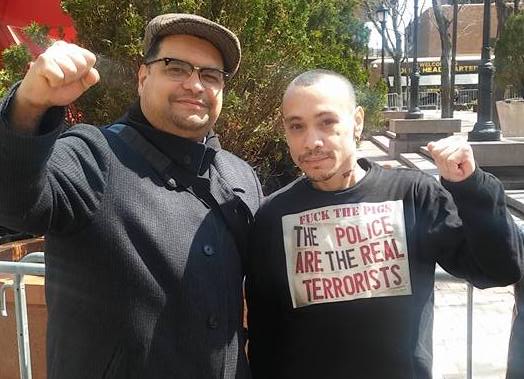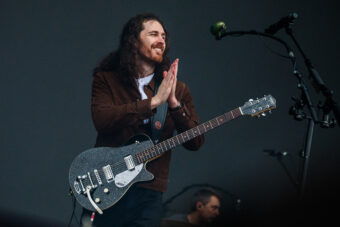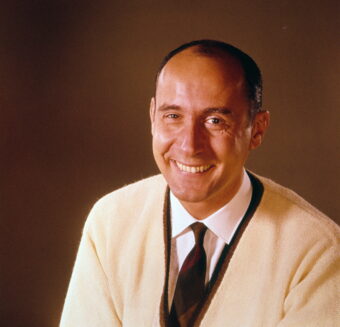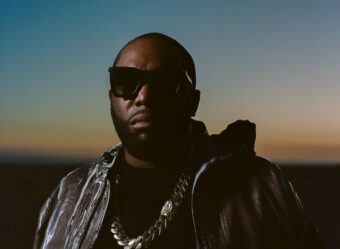Cop Watchers, a new mini-doc streaming on Netflix, is a subtly multi-layered film that focuses on systemic racism in the NYPD, and the watchdog citizens keeping an eye on police brutality. It aims to reveal another underlying battle for basic human rights in the U.S., and opens with a brief profile of Ramsay Orta, the man who filmed the death of Eric Garner. Orta has since been sentenced to four years in jail for drugs and weapons charges (which many have said are exaggerated, in retaliation for his dogged pursuit of justice for Garner).
A second subject of the film is Dennis Flores (pictured above, left). He’s the founder of a cop watch group out of Sunset Park, Brooklyn, called El Grito De Sunset Park, an organization started in response to the behaviors of police in the 72nd NYPD precinct. He’s been watching the cops since 1995, having exposed a number of brutality cases, including that of a pregnant woman. SPIN spoke with Flores about his role in the film and the community of cop watching.
Why is Ramsay Orta so symbolic of this endeavor?
Well, despite what you might believe, he definitely was symbolic, because he was a person who filmed this incident and he got a lot of attention out of it. He’s just a regular guy. He wasn’t a cop watcher or an activist. He’s a regular guy who maybe didn’t understand how the police were going to respond to him filming this. It’s definitely a symbol of a kind of backlash that occurs once you expose cops, a kind of attention you may not have been aware existed.
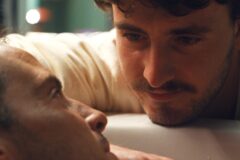
Also Read
Death Be Not Proud
You’ve been doing this since 1995, but only in the last few years has the movement really taken hold. Why is the cop watch movement more visible than ever?
Definitely because of the technology that has evolved. And social media gives the everyday citizen journalist access to talk to the world. That’s really what’s changed in the world. Everyday folks have this access to media whereas we used to be left out. We couldn’t get these stories into the press. We were complaining about this stuff for years. But now, having access to a camera immediately because you whip out your cell phone, now we have a lot more access to making sure that video survives and it can make it to a court room, it can make it to the internet. The media and the police have historically worked together. But now it’s kind of cracked the nut in the narrative of how we’re living and how we’re getting through. We have more control of how we’re projecting to the public.
Why is it worth getting arrested and assaulted to capture this footage?
We have to set precedents to make sure the rights of observers are protected. when we were first recording cops years ago, when there were no cell phones or internet, I’d been assaulted, I’d been maced in handcuffs for photographing police. It might be dangerous. But if you’re acting within the law, and to observe an arrest is lawful, then it’s worthwhile to be an observer. Sometimes the act of arrest is the violation. So if we can be witness to that, it’s worthwhile. That’s something we have to live out. We have to put it in practice. The public understands and the police understands this is lawful.
What solution do you see that bridges the hostility between cops and cop watchers, if there is one?
I think the way they’re trying to respond to it is pushing for body cams, and not necessarily doing that for our benefit, but for the benefit of the police. It’s a catch 22. There’s now more observation, but they’re in control of when and where the footage is. There are those demands for more reform, but we need to make sure the public has access to that footage. We’re seeing that police have control as to when those cameras go on and off. At the end of the day if you don’t read between the fine print, the public doesn’t have access to these videos. It doesn’t mean the media will see it. It doesn’t mean the courts will see it. We’re nowhere near where we need to be in terms of civilian oversight. Most importantly, the public needs to see. We’re just not there yet.
What kind of obligations do bystanders have as cop watchers and citizen journalists?
To not step in because you don’t have the power to stop an arrest. But as a bystander and an observer you shouldn’t just walk away, you shouldn’t just turn a blind eye to injustice. We have a responsibility as a community at the least, at the very least, to document, to observe, for it to later on be used as evidence for what happened. There’s a lot of fear about what can happen afterwards. But this is something that we can all step up to.
Cop Watchers is out now on Netflix.

